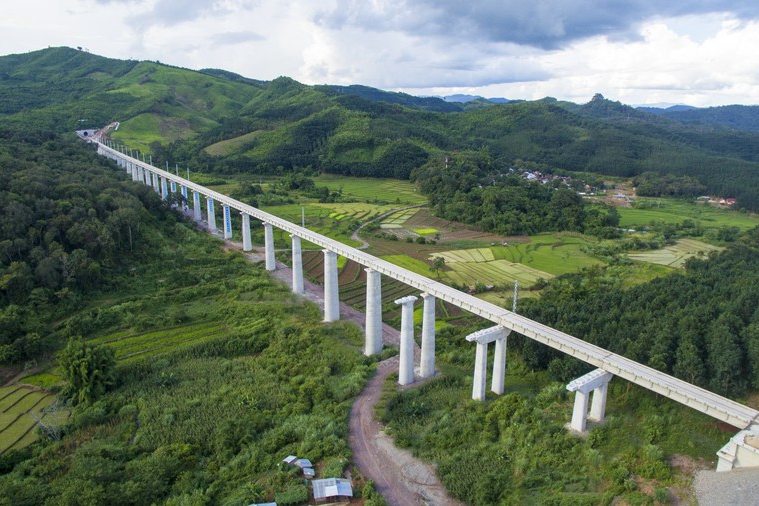Belt and Road Initiative is essential to global recovery
- By Tom Fowdy
 0 Comment(s)
0 Comment(s) Print
Print E-mail China.org.cn, June 26, 2021
E-mail China.org.cn, June 26, 2021

Beijing has underscored the importance of the Belt and Road Initiative (BRI) at the recent Asia and Pacific High-level Conference on Belt and Road Cooperation, a meeting held via video link consisting of over 30 parties, including officials from Asia-Pacific countries and representatives of international organizations.
During the meeting, China stated that it stands ready to forge even closer BRI partnerships with various sides and "follow a path of unity, cooperation, connectivity and joint development to jointly promote the building of a community with a shared future for mankind."
Amid these comments, Chinese Foreign Minister Wang Yi stated that the pandemic has not frozen the initiative and the "pause button had not been pressed," despite economic disruption around the world caused by various lockdowns.
The world is at a crucial economic turning point. As nations look for a long-term exit strategy from COVID-19 amid vaccinations, sights are set on a global recovery this year with IMF and World Bank projections estimating strong rebounds for some.
But one must question, is this recovery uniform or even? It has proved easier said than done for consumer driven economies with surplus amounts of stimulus such as the United States and the United Kingdom, or "zero-COVID" countries such as China where economic recovery has been sustained based on long-term stability and control of the virus. But what about developing nations which don't have easy access to vaccines or the financial resources required to kickstart their economies?
This is why the Belt and Road Initiative is crucial for spearheading global recovery. The BRI is envisioned to promote common development and economic integration across global south countries and beyond by facilitating the creation of infrastructure which overcomes geographic obstacles in order to establish commercial and economic opportunities. Infrastructure is ultimately about imagining potential. Without ports, railways or roads, the logistical challenges of exchanging services, goods and money are near impossible. Businesses look for what is affordable, convenient and possible.
And this is why the BRI is crucial in helping developing countries consolidate their own growth strategies. For example, one BRI project of note is the China-Laos High Speed Railway, which will connect the Laotian capital Vientiane with Kunming in China's Yunnan province at the end of this year. It will provide a direct, fast and convenient route from landlocked Laos, whose eastern border with Vietnam is mountainous, to the world's second largest economy. In terms of business, tourism and trade, its impact will be massive.
Another example is the Mombasa-Nairobi Standard Gauge Railway, a BRI project established by the China Road and Bridge Corporation, which established a route between Kenya's capital city Nairobi and its Indian Ocean city of Mombasa, again massively expanding the country's commercial and export options. The BRI, therefore, contrary to Western media hysteria, is not about debt or loans but rather about promoting mutual economic growth and trade, and led by China's perspective that economic development is not a "zero-sum game." In other words, facilitating economic development within other countries will benefit you too.
In the midst of the global economic fallout caused by the pandemic, there has never been a greater need for more infrastructure investment in order to reboot economic growth, and also envision what the growth of the future will be. Countries need new opportunities and an ambitious and efficient way to boost commerce.
As China enters a new development stage, follows a new development philosophy and fosters a new development paradigm, the country will provide more market opportunities, investment opportunities and growth opportunities for its partners, so as to contribute to an even global recovery.
Tom Fowdy is a British political and international relations analyst and a graduate of Durham and Oxford universities. He writes on topics pertaining to China, the DPRK, Britain and the U.S. For more information please visit:
http://www.china.org.cn/opinion/TomFowdy.htm
Opinion articles reflect the views of their authors, not necessarily those of China.org.cn.
If you would like to contribute, please contact us at opinion@china.org.cn.






Go to Forum >>0 Comment(s)